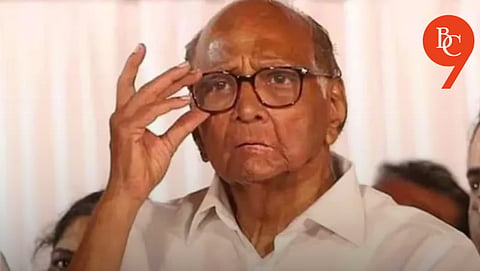

Veteran leader and Nationalist Congress Party (NCP) chief Sharad Pawar has issued a clarion call to India’s political class, urging them to transcend party lines when addressing global matters of national importance. His timely message comes amid growing international challenges and underscores the need for a unified approach to safeguard India’s interests on the world stage.
Speaking at a recent policy forum, Sharad Pawar emphasized that issues such as foreign policy, national security, and international trade demand a collective and non-partisan approach. He cautioned that excessive politicization of global affairs can undermine India’s credibility and bargaining power in international forums.
“On matters that concern India’s global standing and security, we must rise above party politics. Our unity is our strength, and the world takes us seriously when we speak with one voice,” Pawar asserted.
India, as a rising global power, faces complex challenges ranging from border security and climate change to economic diplomacy and technological competition. In recent years, debates on foreign policy and international agreements have often been colored by domestic political rivalries, sometimes leading to mixed signals and weakened negotiating positions.
On global matters, the nation’s long-term interests should outweigh short-term political gains. A united front ensures that India’s voice is heard clearly and consistently on the international stage. Bipartisan support for key policies creates stability and confidence among global partners and investors.
India’s security environment, especially with neighbors like China and Pakistan, necessitates a unified stance to deter aggression and negotiate from a position of strength. As a signatory to major international climate accords, India’s commitments require broad political consensus for effective implementation. Global trade agreements and economic alliances impact millions of Indians. A bipartisan approach ensures that national interests are protected during negotiations. Engagements with countries on technology, defense, and innovation demand a stable and predictable policy environment.
Sharad Pawar’s statement has been widely discussed in political and academic circles. Many leaders across party lines have acknowledged the wisdom of his advice, though some have called for greater transparency and consultation in the formulation of foreign policy. Public sentiment also favors unity on global matters, as citizens recognize the importance of presenting a strong, cohesive image to the world.
Countries like the United States, United Kingdom, and Australia have often demonstrated bipartisan cooperation on foreign and security policy, especially during times of crisis. Pawar’s message echoes this tradition, urging Indian leaders to adopt a similar approach for the nation’s benefit.
Sharad Pawar’s call is a reminder that India’s global aspirations require political maturity and a willingness to put the nation first. Building institutional mechanisms for regular consultation and consensus-building among parties can strengthen India’s position in an increasingly interconnected world.
